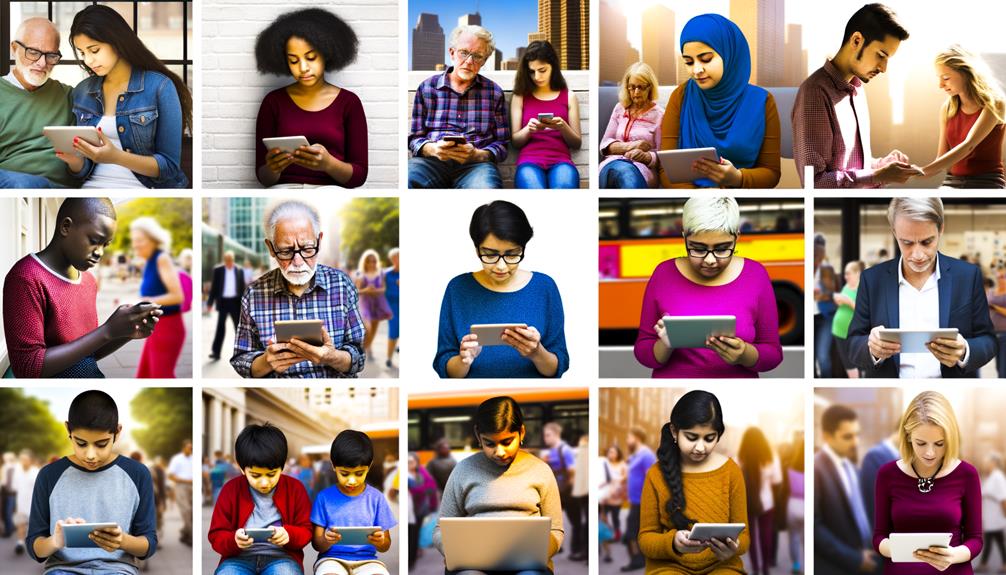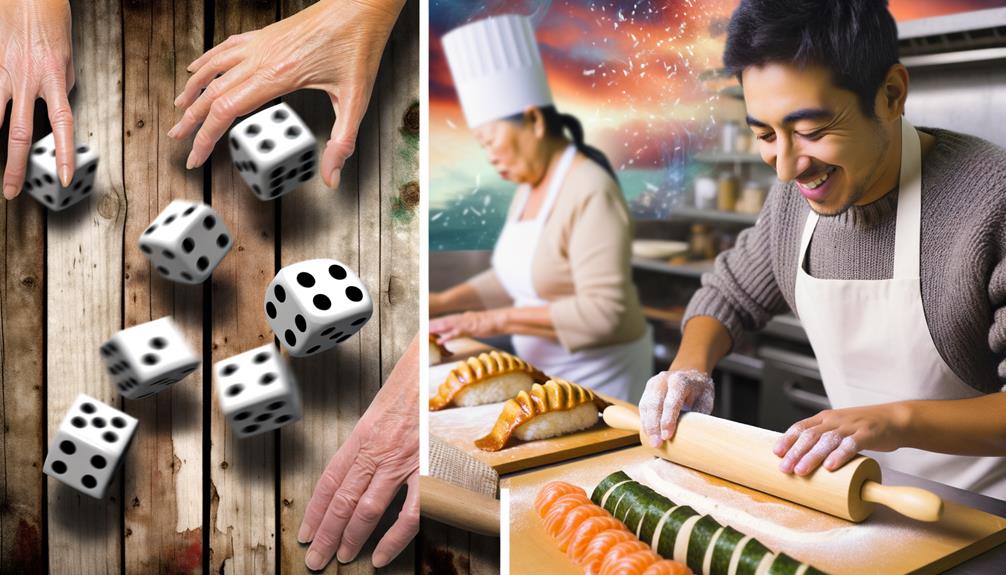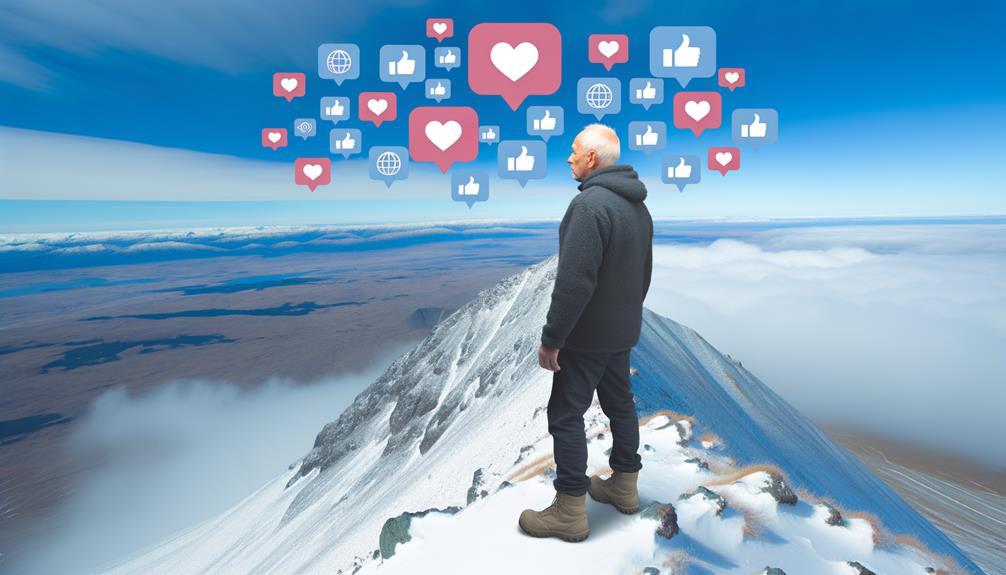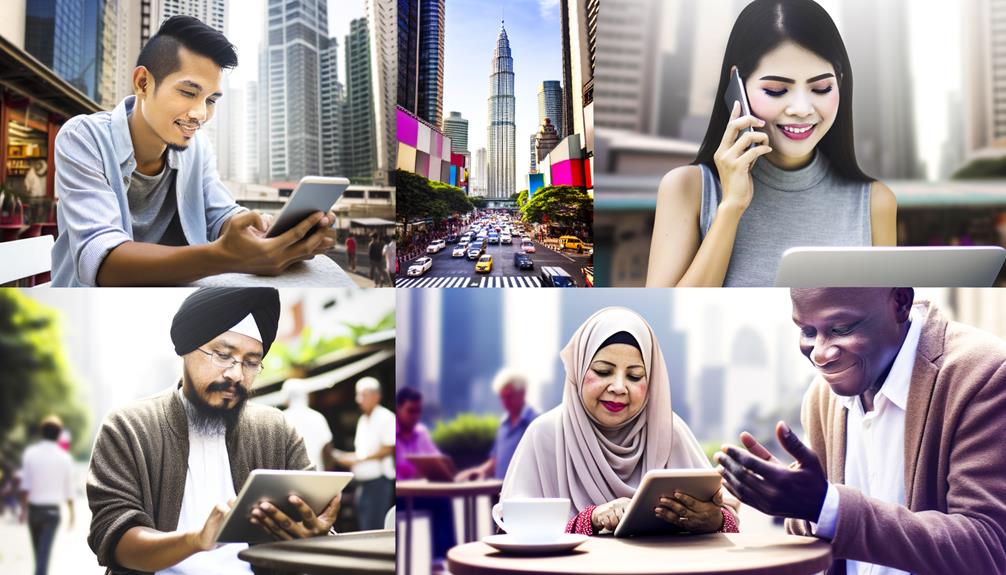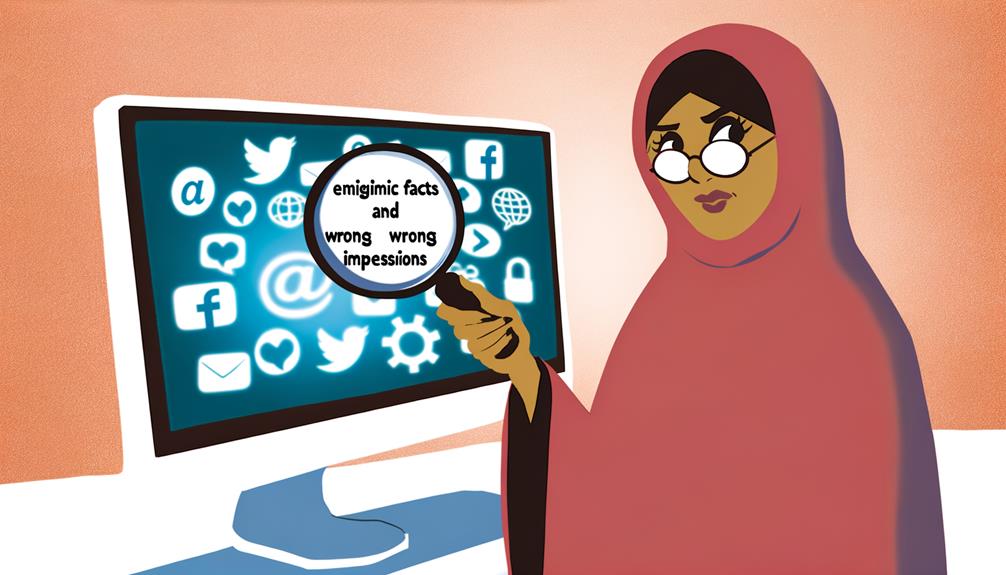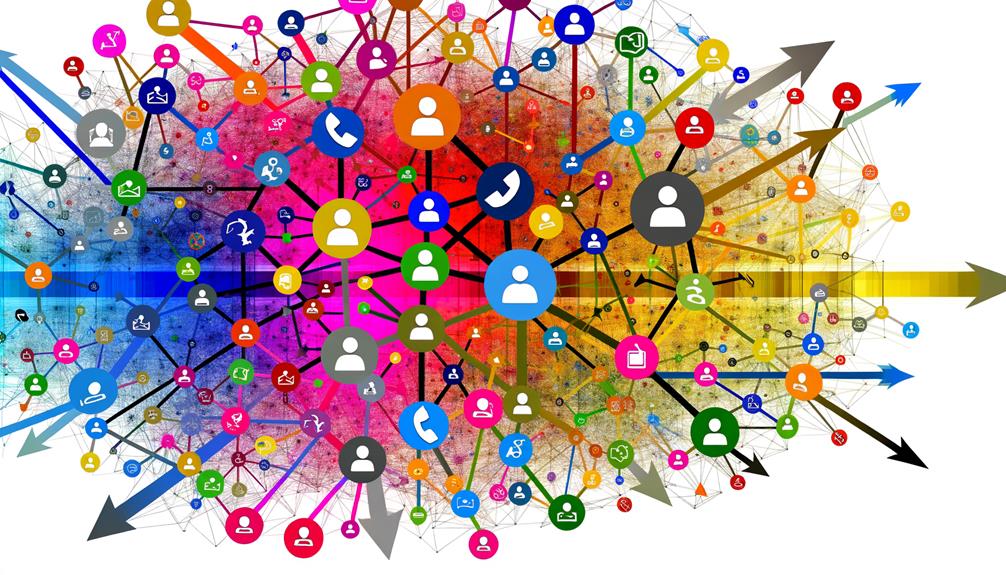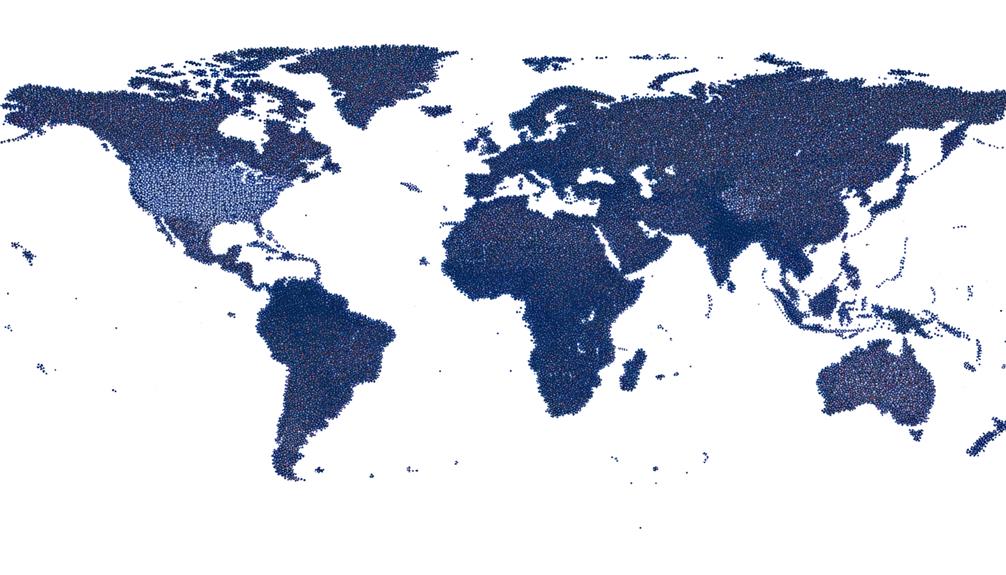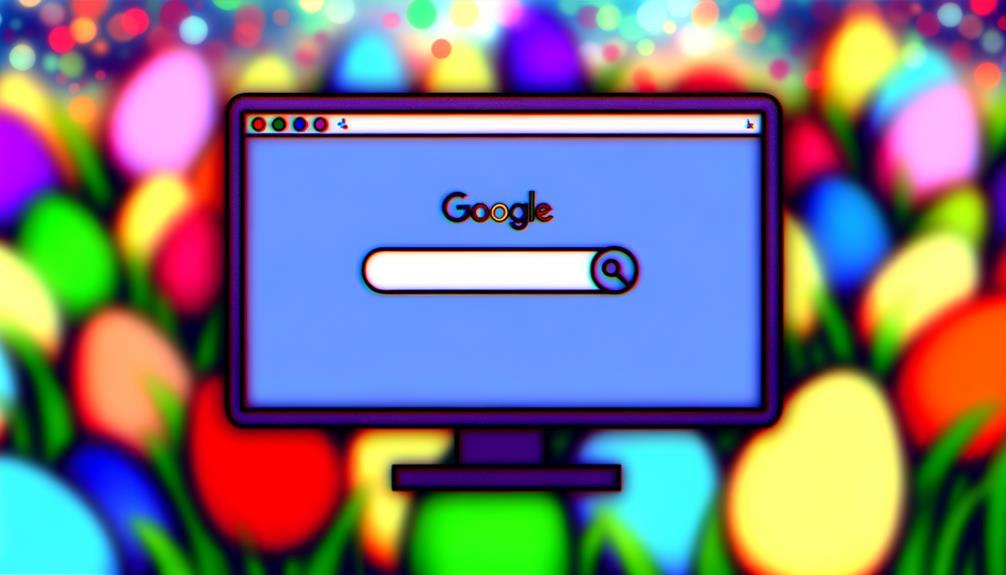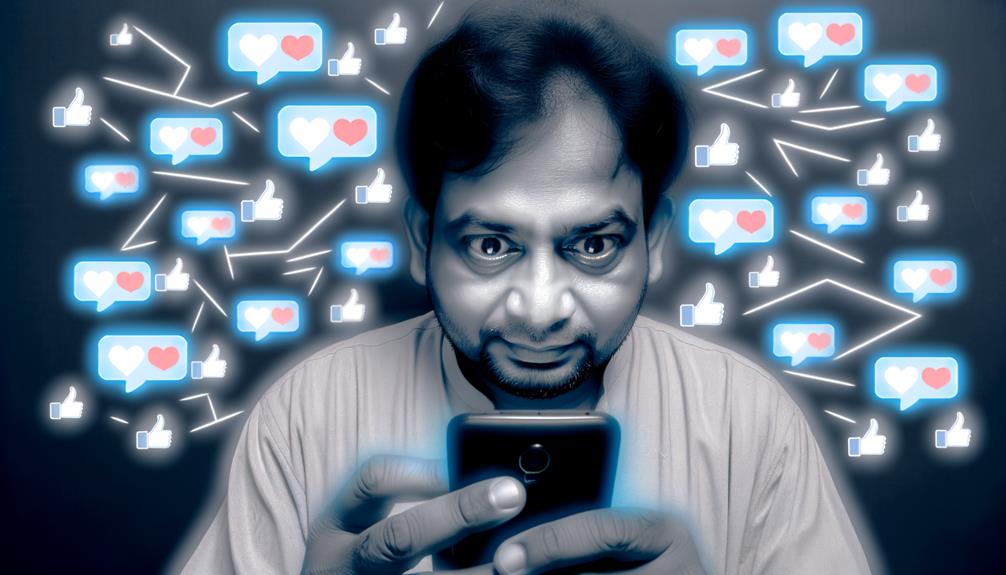Have you ever considered that over 3.6 billion people worldwide are active social media users? The impact of social media on society is profound, influencing everything from how we communicate to shaping our cultural norms.
As you navigate through this exploration, a deeper understanding of the intricate ways in which social media has woven itself into the fabric of our daily lives will emerge.
Join the conversation as we dissect the cultural implications of this digital age phenomenon.
Evolution of communication patterns
Exploring how social media has revolutionized communication patterns offers valuable insights into the changing dynamics of human interaction in the digital age. Social media platforms have fundamentally altered the way people connect, share information, and engage with one another. The immediacy and accessibility of platforms like Facebook, Twitter, and Instagram have enabled individuals to communicate globally in real-time, transcending physical boundaries and time zones.
These platforms have also facilitated the rapid dissemination of news, trends, and ideas, allowing information to spread virally within seconds. As a result, communication has become more decentralized, with individuals having the power to broadcast their thoughts and opinions to a vast audience. This shift has democratized the flow of information, challenging traditional gatekeepers like newspapers and television networks.
Moreover, social media has encouraged the proliferation of new forms of communication, such as emojis, memes, and hashtags, which have become integral components of online discourse. These elements haven’t only altered the way people express themselves but have also influenced language usage and cultural norms. In essence, the evolution of communication patterns through social media has had a profound impact on how individuals interact and engage with one another in the modern era.
Influence on Social Interactions
The cultural impact of social media on society significantly influences social interactions in the digital age. Social media platforms have transformed the way people communicate, connect, and interact with one another. They’ve provided new avenues for staying in touch with friends and family, making new connections, and even forming communities based on shared interests.
Through social media, you can easily engage in conversations with people from all around the world, breaking down geographical barriers and fostering a sense of global interconnectedness. Platforms like Facebook, Twitter, and Instagram allow you to share thoughts, photos, and experiences instantly, enabling real-time interactions that weren’t possible before.
Moreover, social media has also introduced new forms of communication, such as emojis, memes, and gifs, which have become integral parts of online interactions. These elements add layers of expression and emotion to digital conversations, making them more engaging and dynamic.
Shaping cultural norms and values
Social media platforms act as catalysts, molding and redefining cultural norms and values in contemporary society. The influence of social media on shaping cultural norms and values is profound. Through the constant exposure to diverse perspectives and lifestyles, individuals are more open to accepting new ideas and beliefs. This exposure leads to a gradual shift in societal attitudes towards inclusivity and diversity. For example, movements advocating for equality and social justice have gained momentum through online platforms, challenging traditional norms and promoting more progressive values.
| Advantages | Disadvantages | Implications |
|---|---|---|
| Promotes diversity | Spreads misinformation | Shapes societal beliefs |
| Encourages dialogue | Fosters unrealistic standards | Redefines cultural norms |
| Amplifies marginalized voices | Can lead to echo chambers | Influences behavior |
Impact on Self-Perception and identity
Shaping cultural norms and values through social media also significantly influences your self-perception and identity. The constant exposure to curated content and idealized lifestyles on social platforms can lead you to compare yourself to others, affecting how you view your own life and achievements. This comparison may sometimes result in feelings of inadequacy or a distorted self-image.
Seeing carefully crafted posts of people’s successes and happiness may create unrealistic expectations for your own life.
The pressure to present a perfect image online can lead to feelings of insecurity and a fear of not measuring up.
Engaging with diverse perspectives and cultures on social media can broaden your understanding of the world and help shape your identity in positive ways.
Societal changes and global connections
How has the cultural impact of social media influenced societal changes and global connections?
Social media has revolutionized the way societies function and interact globally. It has facilitated rapid communication and information sharing, breaking down geographical barriers and enabling people from different parts of the world to connect instantaneously. This interconnectedness has led to a more globalized society where individuals can engage in cross-cultural exchanges, fostering understanding and unity among diverse communities.
Moreover, social media has played a significant role in driving societal changes by amplifying voices that were previously marginalized. Movements advocating for social justice, equality, and human rights have gained momentum through online platforms, sparking real-world action and policy changes. The power of social media to mobilize masses and raise awareness on important issues has reshaped societal norms and values.
Additionally, the global reach of social media has facilitated business collaborations, cultural exchanges, and diplomatic relations on an unprecedented scale. Companies can now market their products to a worldwide audience, artists can showcase their work internationally, and governments can engage in diplomacy through digital channels. The cultural impact of social media on societal changes and global connections is undeniable, shaping the way we communicate, collaborate, and perceive the world around us.
Conclusion
As you reflect on the cultural impact of social media on society, remember that we’re all in the same boat. The ways in which we communicate, interact, and perceive ourselves have been significantly influenced by these online platforms.
Like a drop in the ocean, social media has created ripples that have shaped our cultural norms, values, and connections on a global scale.
Embrace the changes, but also be mindful of the power and influence of this digital age.

